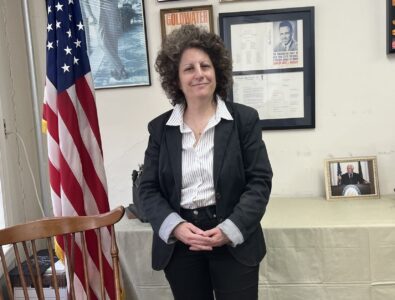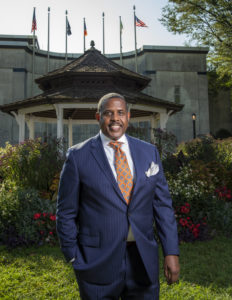A Staten Island social worker is hoping she has what it takes to unseat Assemblymember Nicole Malliotakis.
At “the Great Bay Ridge Debate,” sponsored by the Bay Ridge Community Council, and held on September 23 in the auditorium at Our Lady of Angels, Third Avenue and 73rd Street, Democrat Marybeth Melendez, a longtime community activist, made the case for her candidacy against the two-term Republican/Conservative incumbent, who represents the 64th A.D. in Staten Island and Bay Ridge, positioning herself distinctly to the left of Malliotakis – though by no means on the fringe.
In turn, Malliotakis stressed her business bona fides, as well as her efforts on behalf of district commuters (from the return of the B37 and weekend express bus service to ongoing efforts to adjust the Verrazano Bridge toll structure to be more equitable with respect to Brooklyn drivers) and students (her advocacy on behalf of restoring TAP financial aid for graduate students as well as expanding the aid to include more middle-class families).
Tax cuts, Malliotakis made clear, are key to her approach to reforming government, adding, “We have to make New York City more affordable, and we should focus on some of the bad policies put in place over the decades. We need to control spending so we can reduce the cost of living in New York State.”
Melendez, a single mother of three who said she had balanced her community activism with working three part-time jobs to support her family, told the audience that she had decided to run for office because, as a social worker, “I understand the disconnect between politics and what is happening in our community.”
Malliotakis, for her part, emphasized that she had been part of a state legislature that had closed a $13 billion deficit and passed four consecutive on-time budgets for the first time in decades. She has also successfully battled for senior citizens, she said, making sure that the right of spousal refusal, a provision in state law that helps caregivers pay for long-term care for their chronically ill spouses by separating their income and resources from that of their spouses who require home care due to health needs.
While the two agreed on certain things, one area of strong disagreement was the Dream Act. While Malliotakis made it clear that she did not support it, and said it made no sense to her to give financial aid to undocumented students while not providing TAP assistance to graduate students and more middle class taxpayers, Melendez said that she supported doing both.
“We have to have an open conversation about educational support to the undocumented,” Melendez asserted, contending that broadening tuition assistance across the board – “including passage of the Dream Act” — would “allow us to have more educated and skilled workers in the work force.”
Both have reservations about hydrofracking, with Malliotakis saying that the results of a state study on its impacts should determine the future of “horizontal fracking,” though, she stressed, “We need to make sure nothing is done in the watershed area to affect water supply.”
Melendez, in contrast, said she would “Rather err on the side of caution. I am against fracking for many reasons. All you have to do is turn to Pennsylvania and Ohio [to see what can result from fracking]. We can’t take a chance and get it wrong.”
The pair also disagreed over the minimum wage, with Malliotakis calling raising it in the city “bad fiscal policy” that would pit New York City against not only neighboring states but also other parts of New York State. “I believe it should be raised federally,” she said.
Melendez had another take on the issue. “The cost of living in New York has skyrocketed,” she stressed. “What’s going down is wages.” If they were to go up, she said, residents would “have disposable income,” to use at local businesses, making raising the city minimum wage an “opportunity to keep the economy going,” she said.
Election Day is November 4.

 The color of right: B’klyn GOP, Conservative leaders see blue area trending red
The color of right: B’klyn GOP, Conservative leaders see blue area trending red  In Public Service: State Senator Kevin Parker
In Public Service: State Senator Kevin Parker